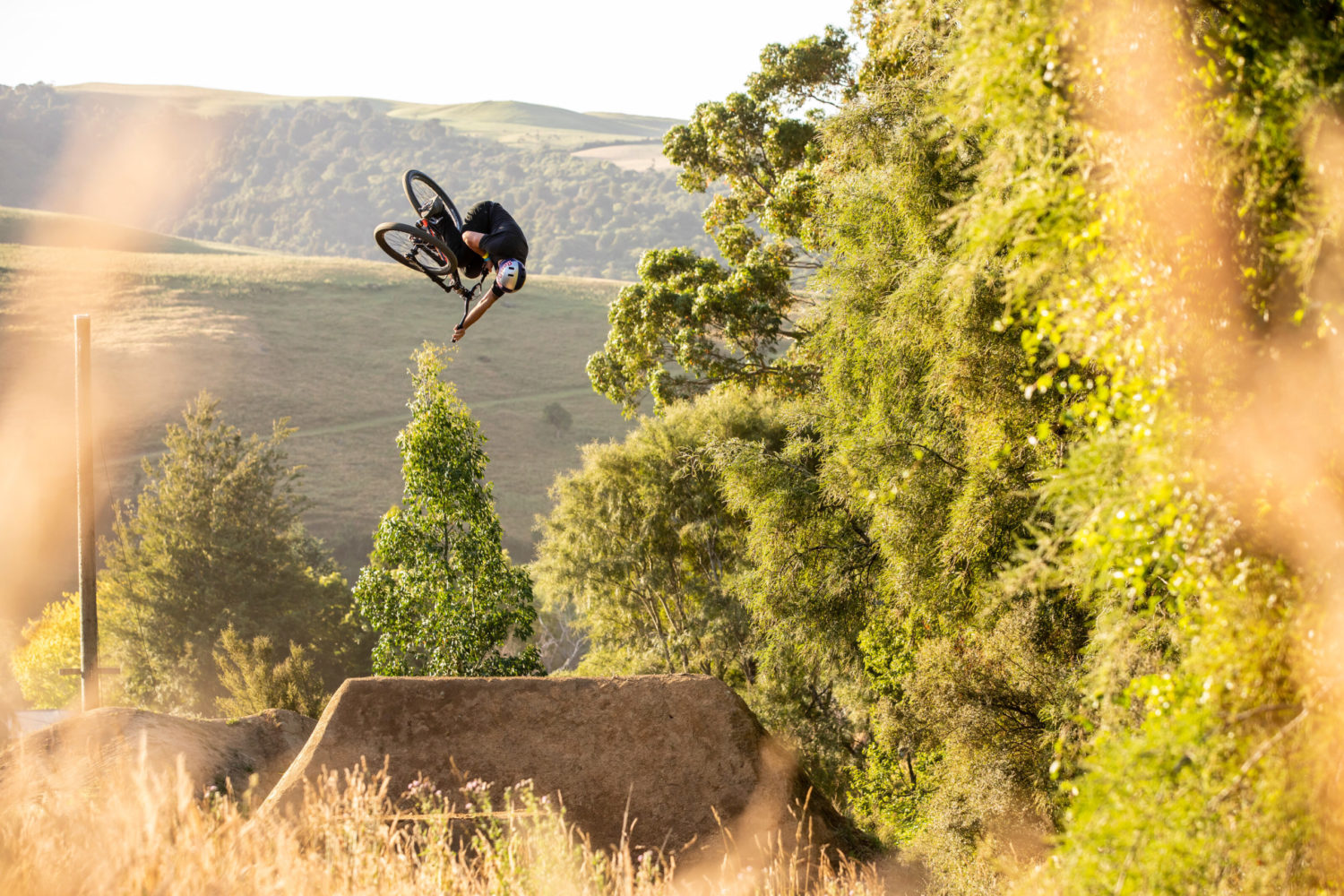

In the sport of freeride mountain biking, taking big risks often produces big rewards. Professional freerider Carson Storch knows this firsthand.
The 28-year-old Bend native has spent the last decade competing in high-profile slopestyle and freeride competitions and starring in mountain biking film projects in which he pushes the limits of the sport.
Similar to downhill biking and dirt jumping, freeride mountain biking involves building and riding trails that showcase a rider’s tricks when airborne (flips, spins, tail whips), speed, control and style.
Growing up in Central Oregon, Storch was a self-described “mega-grom” who loved to snowboard, skateboard, and ride dirt and mountain bikes. At age 17, Storch began filming mountain biking videos with friends and entering freeride competitions.
In 2014, Storch qualified for finals in the Red Bull Rampage — a high-profile, invitation-only freeride mountain biking competition in Virgin, Utah — and finished in the top 10 in several other major slopestyle contests. He went on to win the Best Trick award at the Rampage in 2016. Two years later, he took second at Crankworx Freeride Dirt in Whistler, Canada.
Storch’s professional success has not been without setbacks. While thrilling, freeride mountain biking is also inherently dangerous; even highly- skilled professional riders are susceptible to crashes and injuries.
In the sport, “hitting the ground is inevitable…you have to know how to crash to protect yourself (from serious injury),” said Storch, who is known for throwing difficult mid-air spins. “You have to be strong and coordinated, since a lot of tricks are pretty calculated and technical. A lot of it is mental — it’s about suppressing adrenaline and staying calm and focused under pressure.”
In July, Storch fractured his clavicle jumping from a helicopter when the rotor wash (air turbulence caused by a helicopter rotor) caught his wheels before he landed. While he may eventually need surgery, Storch is recovering from his injury with the help of physical therapist Pablo Gomez (Rebound @ BOSS Sports Performance). He is working on maintaining strength and mobility in his neck, shoulder and arm.
Storch said he also relies on physical therapy to prevent old injuries from resurfacing. In addition to fracturing his tibial plateau this past April, he partially tore the MCL and meniscus in his right knee in 2014. In 2015, Storch fractured his clavicle and severely sprained his ankle in two separate crashes.
He has received care at Rebound for all of his injuries over the years, which he said has been invaluable for his performance. “I have to rely on strengthening (previously injured) muscles, and improving my balance and flexibility through the right PT exercises,” said Storch of his ongoing rehab program.
While many of Storch’s film projects were placed on hold due to his recent injury, he said he is on track to compete in the Red Bull Rampage this October. He also plans to return to working on segments for the film “Quarterpoint,” directed by esteemed mountain bike videographer Clay Porter. Storch trains primarily in his own backyard; he shapes and rides terrain on his Bend property.
Storch said he’s committed to advancing freeride mountain biking in Central Oregon and beyond. He helps organize and create the course for Black Sage Fest, an annual freeride festival held at the Oregon Dirt Park in Prineville.
“Motivating people to get on bikes is the whole point of my job,” said Carson Storch. “I love pushing myself and competing,” His injuries have only solidified his passion for the sport. “Adversity isn’t always bad — you learn from it and progress.”
Photo credits: Peter Jamison / Red Bull Content Pool // SI202010160582 (close-up); Graeme Murray/Redbull Content Pool // SI202002050227 (action shot)
